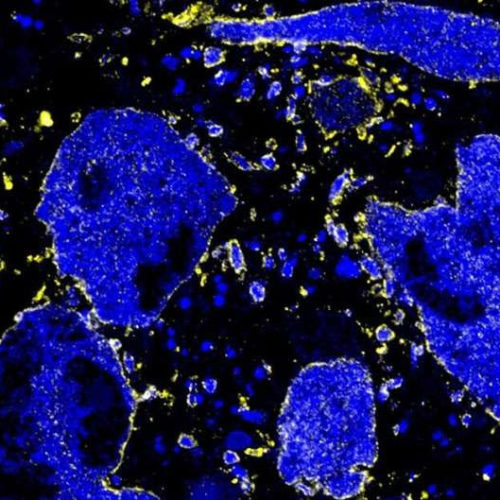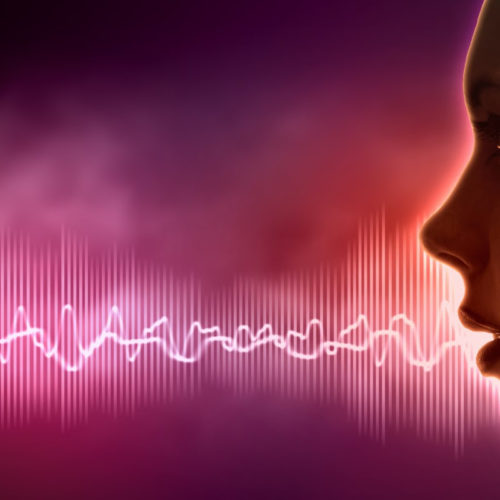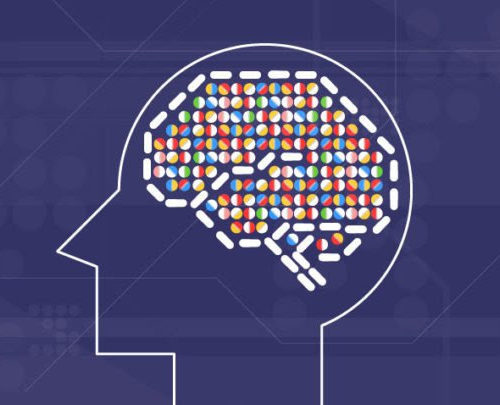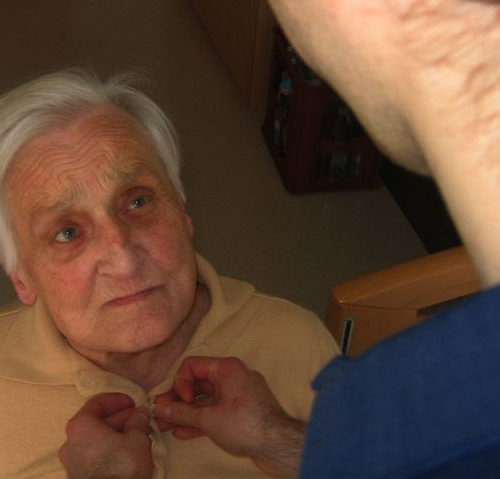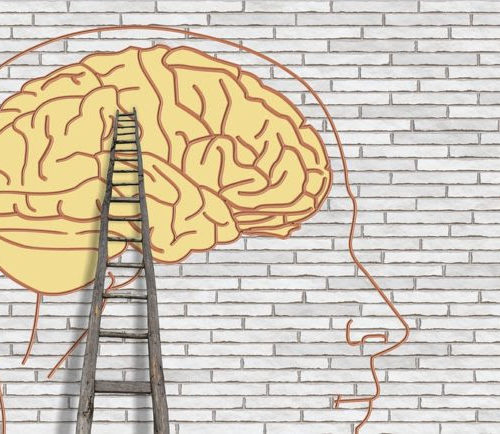by Public Library of Science Credit: Pixabay/CC0 Public Domain Researchers have developed a new method to identify people who are at greater genetic risk of developing Alzheimer’s disease before any symptoms appear—which could help speed creation of novel treatments. Manish Paranjpe of the Broad Institute of MIT and Harvard in Cambridge, Massachusetts, United States, and...
Tag: <span>Alzheimer’s research</span>
New Alzheimer’s research could inspire better treatments and earlier diagnosis
by University of Portsmouth Microscopic image of human locus coeruleus nerve cells, pseudo-coloured in blue, expressing the GABA-A alpha 3 receptor, pseudo-coloured in yellow. Note how the signal for the alpha 3 receptors almost completely cover the LC cells, indicating how important this protein is to controlling LC activity. The study found that Alzheimer’s pathology impairs...
AI algorithm detects signs of Alzheimer’s disease through language
By Nick Lavars September 02, 2020 AI algorithms that analyze the language used by Alzheimer’s sufferers could become a useful tool in diagnosing the disease in its early stages With no cure and no straightforward way of diagnosing the disease, scientists are exploring every avenue when it comes to detecting Alzheimer’s during its early stages....
Study: MTL deterioration can lead to impulsive decisions
Deterioration of a part of the brain known as the medial temporal lobe can cause an older adult to make more impulsive decisions. One decision-making process — temporal discounting — places a greater value on a smaller and immediate outcome while dismissing a better but delayed outcome: instant gratification, in other words. Researchers at the...
Gene therapy could potentially reverse memory loss from Alzheimer’s in humans
Researchers from Macquarie University have discovered a world-first new treatment that reverses the effects of memory loss associated with Alzheimer’s disease in a study of mice with advanced dementia. The research, co-led by two brothers, Dr Arne Ittner and Professor Lars Ittner, from Macquarie University Dementia Research Centre, builds on their work begun in 2016...
These Drugs Carry Risks and May Not Help, But Many Dementia Patients Get Them Anyway
Nearly three-quarters of older adults with dementia have filled prescriptions for medicines that act on their brain and nervous system, but aren’t designed for dementia, a new study shows. That’s despite the special risks that such drugs carry for older adults – and the lack of evidence that they actually ease dementia-related behavior problems that...
Identifying Alzheimer’s risk factors in young people
Interview conducted by Emily Henderson, B.Sc. News-Medical speaks to Dr. Keith Fargo from the Alzheimer’s association about their latest research which looked at risk factors that could aid in the early detection of Alzheimer’s disease. Why is it important to research Alzheimer’s and its risk factors? Alzheimer’s is a huge problem. It is a fatal...
Diabetes medication could help reducing one of the worst effects of aging
Aging is just not fun. At the later stages of your life you are more likely to encounter some serious health problems, such as Alzheimer’s disease. Once you hear this diagnosis, you know you’re in for a bad ending, because it is incurable. However, now scientists at the University of Toronto and the Sunnybrook Research...
Mucus shows promise as cheap and easy diagnostic tool for Alzheimer’s
By Nick Lavars August 12, 2020 Alzheimer’s researchers Professor Cheil Moon (left) and Gowoon Son (right) analyzing nasal discharge samples in the lab at Daegu Gyeongbuk Institute of Science and TechnologyDaegu Gyeongbuk Institute of Science and Technology VIEW 1 IMAGES With so much we are yet to understand about how Alzheimer’s develops, scientists are coming...
New database aims to make Alzheimer’s diagnosis easier and earlier
Volunteers can add data with a five-minute online session. Do you get nervous when you can’t think of a word? Chances are it’s a momentary lapse, but problems with language are one of the symptoms that can indicate a neurodegenerative disorder like Alzheimer’s disease. Unfortunately, diagnosing these conditions requires scoring below a rather low threshold...
- 1
- 2


